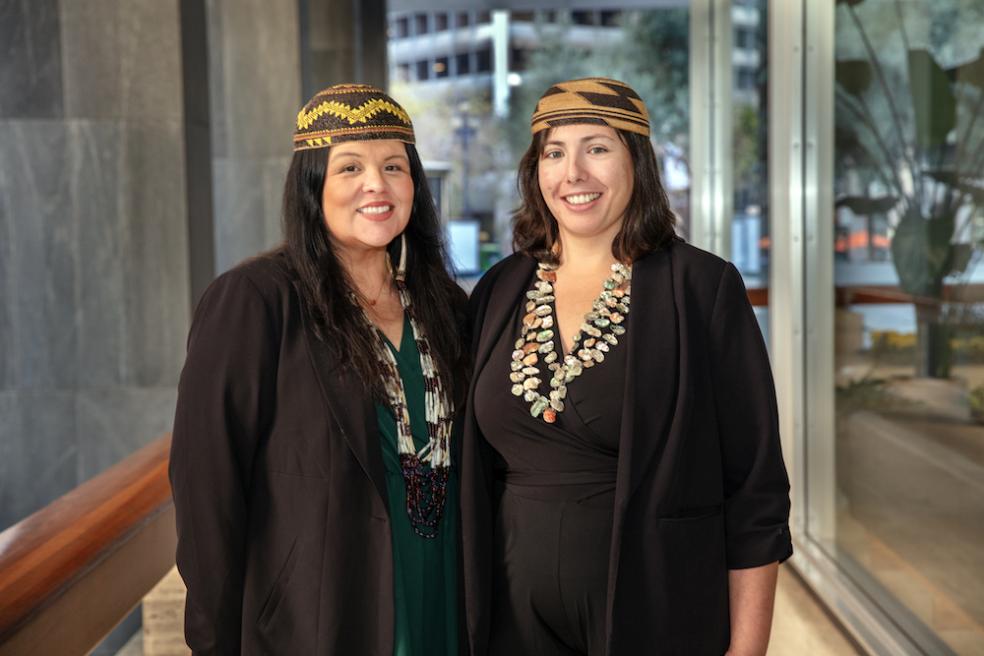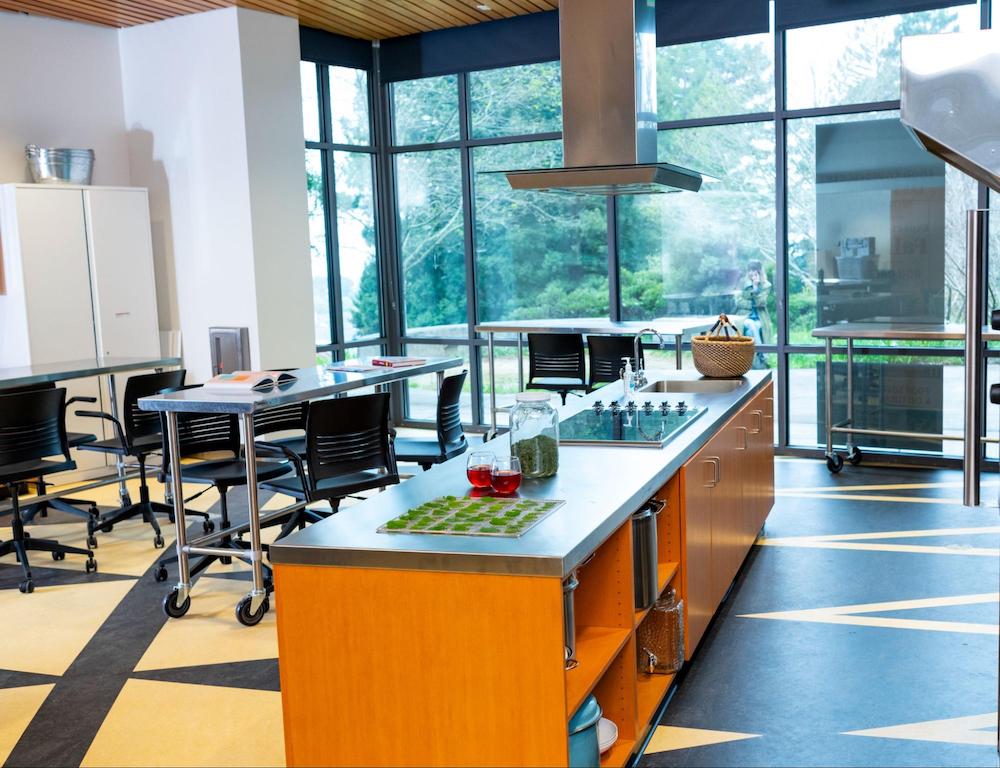
Each year, Irvine’s Leadership Awards recognize innovative leaders whose breakthrough solutions to critical state challenges improve lives, create opportunity, and contribute to a better California. In addition to spotlighting exemplary leaders whose work benefits the people of California, The James Irvine Foundation provides each recipient’s organization with a grant of $350,000 to support their work. To learn more about the Leadership Awards, please visit IrvineAwards.org.
Together with students, community members, and Tribal leaders, Risling Baldy and Reed are leading efforts to Indigenize Cal Poly Humboldt and champion food sovereignty, land justice, and Indigenous science. They created the state’s first Food Sovereignty Lab within a university, a dedicated space for revitalizing traditional food systems, and secured agreements with the campus to manage outdoor space including a traditional fish cooking pit, forest, and exterior space known as Wiyot Plaza. The Food Sovereignty Lab officially opened in 2024.
The Food Sovereignty Lab creates a welcoming campus environment for Indigenous students and mentors future leaders, improving community wellbeing through Indigenous knowledge and food sovereignty while integrating Indigenous Science, community outreach, and University resources.
Risling Baldy and Reed, along with their dedicated staff and students, create opportunities to advance food sovereignty and Indigenize campus and community spaces through research and community projects based on Traditional Ecological Knowledge.
"The Food Sovereignty Lab is about focusing on Indigenous sciences as something that is worthy of being studied,” Reed says.
Traditional Ecological Knowledge offers a powerful, comprehensive solution to climate change, rooted in generations of ancestral ecological and cultural understanding. The Rou Dalagurr: Food Sovereignty Lab Food builds resilience and sustainability by centering time-tested community-driven practices. Climate change will not be solved by colonialism, it will be solved by community, according to The Food Sovereignty Lab.
The Food Sovereignty Lab connects youth and community with Tribal nations in meaningful ways to build land-based learning, empower future generations in climate resiliency, building future leaders of Indigenous science, food sovereignty, and land justice.
"We are so proud of the work that the students, community, Tribes, and youth have done to make this lab a possibility. The work we will do over the next few years will bring together Indigenous Science, TEK, and community knowledges in a meaningful way and we are proud to lead this work toward a better future for all," Risling Baldy says.
Video credit goes to Talking Eyes Media and The Range.
Risling Baldy (enrolled Hoopa Valley Tribe, Yurok/Karuk) and Reed (enrolled Yurok Tribe, Hupa/Oneida) were born in Humboldt County and felt strong connections to their cultures. For Risling Baldy, her deep involvement with her community includes the revitalizing of the Flower Dance. After moving away as a child, Reed was excited to be able to return home as an adult to work for the Yurok Tribe.
They crossed paths while students at UC Davis, and later reconnected as faculty at Cal Poly Humboldt, driven by a shared vision to support Native American students and Tribes. Together, they mentor students, guiding them through research, project development, and advocacy, while also fostering collaborations that address community needs. Their vision is to Indigenize the Cal Poly Humboldt campus and extend the university’s resources to support the broader Indigenous community as leaders of the Food Sovereignty Lab.

“Blue Lake Rancheria is thrilled to learn of Irvine’s Leadership Award going to two outstanding local leaders who are helping to advance Tribal food sovereignty across the region. We extend our congratulations and appreciation for the amazing work that they accomplish,” says Heidi Moore-Guynup, Director of Tribal and Government Affairs, Blue Lake Rancheria.
Please view our 2025 Leadership Award Recipients’ video here: youtube.com/watch?v=3jT2G6Dhinw. All video credit goes to Talking Eyes Media and The Range.
The Food Sovereignty Lab would like to thank its partners for their unrelenting dedication and support. As partners in its work, it hopes to continue impacting the communities that we serve.
The Food Sovereignty Lab is supported mainly by donations and grant funds. To support the lab and learn more about the Rou Dalagurr: Food Sovereignty Lab & Traditional Ecological Knowledges Institute, go to nasp.humboldt.edu/fsl.